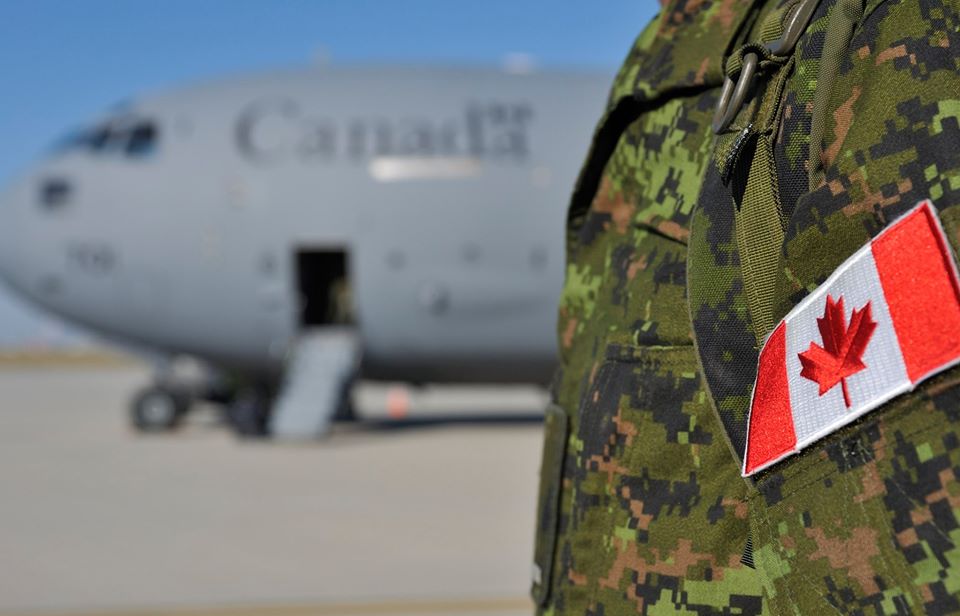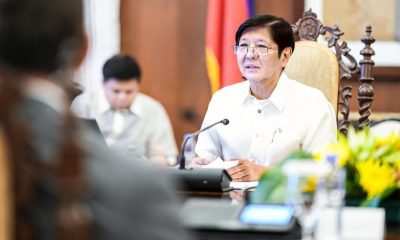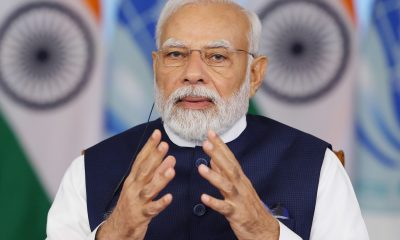Canada News
How COVID-19 has impacted Canadian Forces missions abroad

The CAF has tough choices to make about what risks are worth taking and which efforts must be curtailed. Canada’s largest deployments have been to Latvia, Ukraine, and Iraq with additional forces in Kosovo. (File photo: Canadian Armed Forces/Facebook)
The Canadian Armed Forces (CAF) has been stretched by natural disaster relief efforts and is in even higher demand now with Operation Laser, the CAF response to COVID-19. The virus itself has spread into the CAF, with service members testing positive after being deployed into long-term care facilities. These events have reduced the CAF’s readiness and stalled recruitment efforts, raising the question of what the military is doing outside of Canada at a time when domestic operations are on the rise.
The CAF has tough choices to make about what risks are worth taking and which efforts must be curtailed. Canada’s largest deployments have been to Latvia, Ukraine, and Iraq with additional forces in Kosovo. (Canada has the fewest soldiers deployed in UN missions in decades.)
While Canadians have looked to the armed forces to help us deal with the pandemic, we have to take seriously the threat COVID-19 poses to the Canadian Armed Forces. The saga of the American aircraft carrier stuck in Guam for two months after a COVID-19 outbreak aboard makes it clear not only can the members of armed forces catch this virus, but that it can spread quickly and widely in military units.
Ships may be the most vulnerable, but no military service is designed to allow for social distancing. For example, the bunks in average military barracks are close together, designed to cram as many troops in a space as possible. To maintain the ability to fight if called up —readiness — the CAF must now focus on a different notion of force protection. Rather than being concerned with improvised explosive devices and suicide bombers in Afghanistan, now the commanders have to worry about protecting the force from a virus.
This concern shapes the decisions about what the troops can and should be doing. To this end, one of the first orders of the chief of the defence staff in launching Op Laser was to announce an operational pause and for service members to stay at home to be healthy if called upon to support civilian authorities, a request that came in late March. But with 2,000 CAF members deployed abroad across 20 operations, the military has also had to adjust its operational tempo internationally. While some of the deployed forces have been put on an operational pause, other operations have simply adapted to public health restrictions or adapted their mission tasks to take COVID-19 into account.
The deployment to Latvia is and has been the largest and most visible CAF effort over the past several years. Canada is the Framework Nation in Latvia, providing leadership for eight NATO countries as part of the Enhanced Forward Presence mission designed to deter Russian aggression in the Baltics. The pandemic has not stopped the CAF from training and demonstrating its readiness in Latvia. Exercises continue but with less direct interaction with the public to avoid spreading the disease. “Training keeps on going, as you would suspect, with the full battle group of nine nations,” Col. Eric Laforest, the commander of Task Force Latvia told CTV News. There is a concern among NATO allies that the Russians, if given an opportunity, would take advantage of a Canadian/NATO withdrawal.
In Kosovo, also, operations are ongoing, and the NATO mission there, KFOR, has integrated COVID-19 response as part of its activities. KFOR troops can continue to perform their core tasks of providing a safe and secure environment and freedom of mobility so long as they follow public health guidelines. KFOR personnel have been able to deliver medical equipment to communities in Kosovo, from Pristina to Mitrovica. COVID-19 has even opened up new civil-military cooperation opportunities for KFOR, staying present and visible within the communities in which it operates.
In contrast, the training mission in Ukraine, Operation UNIFIER, has been frozen since early April and is just restarting now. Canada is one of several countries that has been engaged in bilateral training efforts coordinated via the Multinational Joint Commission, which includes Lithuania, Poland, Sweden, the United Kingdom and the United States. In the aftermath of Russia’s seizure of Crimea and its involvement in the conflict in Eastern Ukraine, Canada, along with these other countries, has sought to train the Ukrainians so that they can better resist Russia-backed forces. Instead of 200 CAF troops engaged in training, there have been about 60 staffing the mission, with no training going on so as to minimize the spread of the disease. Another 90 soldiers will soon join them.
Still at a halt is the NATO Mission in Iraq (NMI), which is tasked with providing advice and training assistance. In late May, the government of Iraq requested assistance from NATO in the form of medical equipment and other supplies, saying that COVID-19 had outstripped the ability of the Iraqi Ministry of Defence to support efforts by the country’s Ministry of Health to control the spread of COVID-19 and deal with those personnel with symptoms of the virus. Why, then, has NATO not adapted its operations to support the Government of Iraq, keeping its forces in theatre?
In mid-May, at a NATO meeting of the Chiefs of Defence this spring, Air Chief Marshal Peach said, “when the conditions permit, and working with the government of Iraq, we will resume our training efforts as well as increase our activities on the ground as we take responsibility for some of the training activities of the Global Coalition.” Worsening security conditions, especially with the targeted killing of top Iranian commander Qassem Soleimani in January, combined with the additional operational stressor of COVID-19, has put Iraq on the backburner. While NATO has pointed to deteriorating security conditions as the main reason for this operational pause, the CAF has indicated that Op Impact activities are paused because of COVID-19 and the risks associated with spreading the virus. Personnel that were in Lebanon and Jordan stayed in place in the spring, awaiting the end of their tour, while personnel in Iraq operating under the banner of NMI returned home.
When we compare different theatres of operations, we can see how the CAF has adapted its activities abroad in response to COVID-19. Carrying out training activities, whether it is in Ukraine or Iraq, requires meeting series after series of new troops, greatly increasing the risk of exposure to COVID-19. Pausing training has consequences, but such stoppages do not present a threat to the security of the host country. This sets a clear distinction between training missions and, for instance, the deterrence mission in Latvia, where the goal is to deter Russian aggression.
Thus far, the CAF and its leadership have made responsible decisions for the missions based on the prevalence of COVID-19 in the host countries, the risks to Canadian troops and the nature of the threats. This has been the best course of action, but operational pauses are meant to be temporary, and more difficult decisions lay ahead for Canadian commitments abroad.
This article is part of the The Coronavirus Pandemic: Canada’s Response special feature.
This article first appeared on Policy Options and is republished here under a Creative Commons license.





















